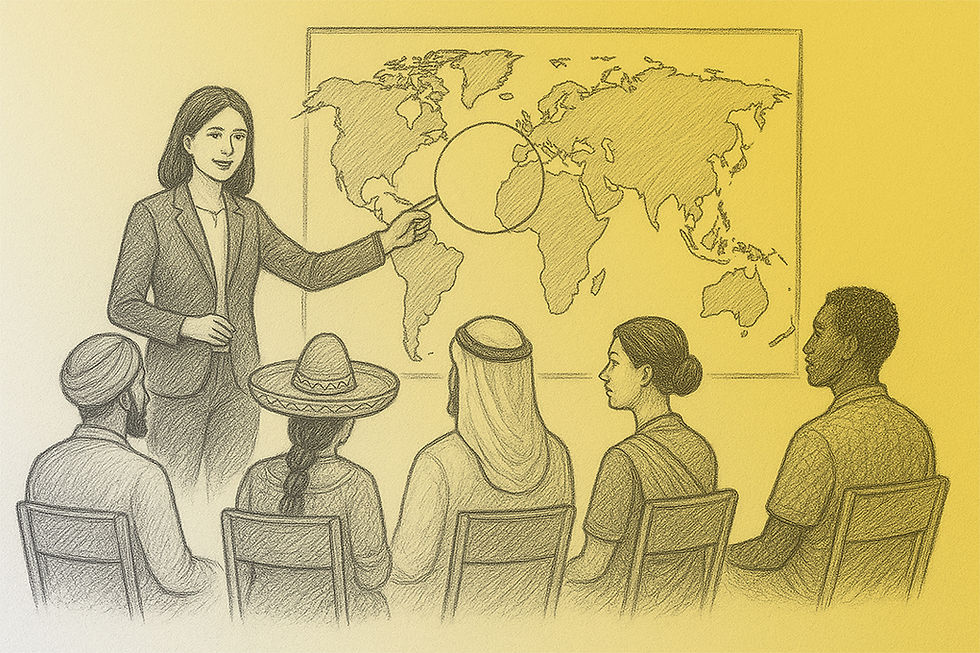Bible Poverty - A Front Row Seat
- nick franklin
- Sep 26, 2023
- 4 min read
The bus bumped and lurched along the rural Zimbabwean dirt road which caused Keto Sithole’s fellow passenger’s elbow to keep jabbing into his ribs. He felt himself wishing for some fresh air and a bit of personal space as the bus stopped every now and then to pick up yet more passengers. However, everyone seemed to be enjoying themselves, happy to be on the way to their destinations. Some snored as others chatted loudly trying to be heard over the blaring radio and shout greetings at pedestrians. Keto was also happy to be headed towards his own destination, even with the unwelcome companion of a backache.

Keto says that he will travel on anything that moves. A wry sense of humour helps him manage the ups and downs of travel as a Bible translation Regional Correspondent for The Word For The World. He needs the fortitude to get through the types of trips that can look like this: starting with a six-hour, stuffy bus ride, then a four-hour car ride in a four-seater taxi shared with seven people, and ending the last section of the journey on the back of an ox-drawn cart. Not every trip is quite as adventurous, which he is grateful for, but that’s a lot of adventure in one day!

Keto has spent much time in situations like these, which gives him the opportunity to consider his reasons for what he does. He says that he feels privileged to have the opportunity to listen to people’s hearts as they tell him about their lives. In every story he captures, he sees the powerful hand of God at work as they describe the impact of the Bible in their heart languages.
The irony is that as Keto visits people groups in the process of translating the Bible into their languages, he himself does not have a usable Bible in his own language, Ndau. His pastor has told him that the one that has been produced historically is difficult to understand, and the Ndau people have not accepted it because it doesn’t sound natural or clear. It would be like English-speaking Christians trying to understand the Scriptures written like a Shakespearean play. To Keto’s sadness, at this stage, there is no Ndau Bible translation project at all.

Keto grew up in Hwange where he recalls, “People would laugh at me when I spoke my language. So I laboured to unlearn my heart language so as to fit in. Sadly, my own language decreased, except at home where my father remained unyielding regarding the use of Ndau his mother language”.
Keto remembers that he only gained confidence to use the Ndau language in high school and college where he met other Ndau speakers. It dawned on him how much of his identity he had lost, and how much value there was in his own culture and language. He began to think about how inextricably linked language and identity are, and he noted to himself, “Being Ndau is the greatest heritage my father has given me”. He came to know Jesus through his mother. He explains, “I remember [my mother] literally dragging us along [to church]. I slowly began to understand that Jesus died for me and He was inviting me to follow him. Though the Bible was read and preached in Ndebele, the language of wider communication, I learned that I was a lovable sinner in God’s eyes. I also learned that God saved me and is calling me to serve Him. He has given me the grace to serve other people in His vineyard.” He grew up in the faith reading and hearing Shona, Ndebele, and Tonga Bibles and never imagined a situation where it would be possible to have the Bible translated into marginalised local languages like his own.
Keto went on to be trained and worked in broadcast journalism and public relations within the wider church where he headed up the Social Communications Department. Part of his role was to gather and distribute stories, enabling communication, which was a great foundation – eventually leading to his role as a Regional Correspondent at The Word For The World. In this unique position, he has a front-row seat to seeing and experiencing the effects of Bible poverty.
He says, “I believe it is necessary for people to have the Bible in their heart languages because God does not exclusively speak Shona, Ndebele or English. God speaks every language. Equipping people to have the Bible in their heart language is a restoration of those people’s dignity. The Bible is the most read and cherished book in the world. Having the Bible in every heart language is a sure way of preserving that particular language”.
Keto has observed that Ndau people are traditionally associated with sorcery, and he praises God that many have received Christ and are living Christian lives. Even with the erosion of their language, they feel proud of it and greatly desire a Bible in Ndau so they can dig into the depths of God’s truth and know Him more.
In the context of Keto’s story, as well as the upcoming International Translation Day on the 30th of September, we invite you to pray for the Ndau people. Let us trust God together for His hand of providence in their lives by providing a Bible in the language they know best - their own. For more information on how The Word For The World equips and trains indigenous people to become Bible translators, click here.




Comments